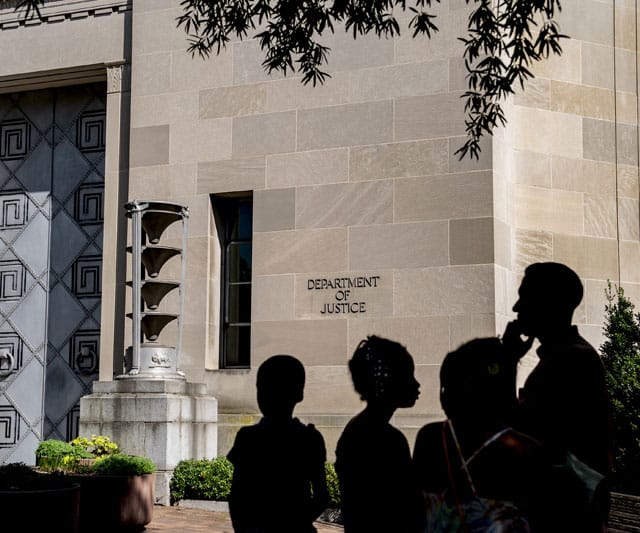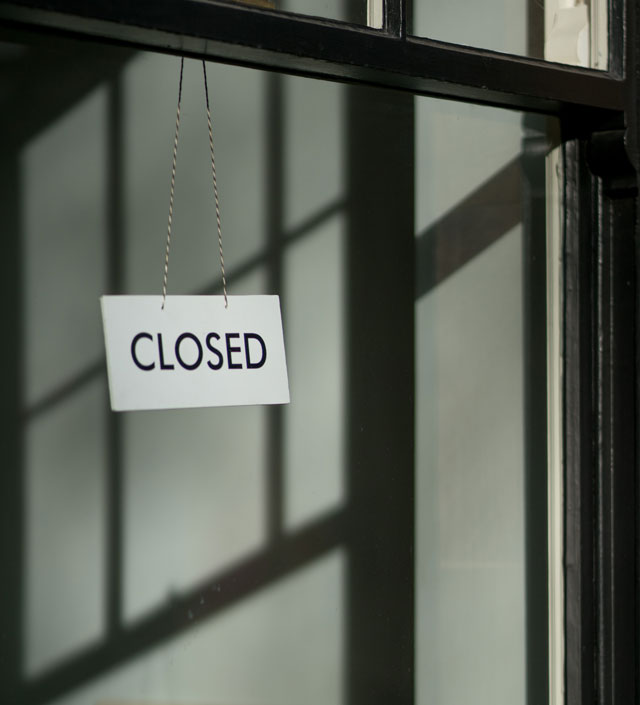For more than two years, Leon Haynes, a New Jersey tax preparer, told some of his clients that the federal government was giving out “free money” in the form of pandemic relief to people who owned businesses. According to federal prosecutors, Haynes filed more than 1,000 false tax forms, fraudulently claiming more than $124 million in COVID-19 employment tax credits for businesses that he and others owned.
Haynes was arrested at the end of July.
The complaint is one of several COVID-19 fraud cases detailed Aug. 23 by the Justice Department, which has been cracking down on businesses and individuals who inappropriately pocketed federal relief aid.
As of late August, the federal government has charged 3,195 defendants for offenses related to pandemic fraud and seized more than $1.4 billion in relief funds, according to data released by the department.
That included the results of a three-month “sweep” to combat COVID-19 fraud, which ended in July and involved more than 50 U.S. attorneys offices and dozens of federal, state and local law enforcement agencies.
The sweep resulted in criminal charges against 371 defendants, with 119 convicted or pleading guilty. The Justice Department claimed 63 defendants had connections to violent crime and 25 had purported connections to transnational crime networks.
“This latest action,” said Attorney General Merrick Garland, “should send a clear message: The COVID-19 public health emergency may have ended, but the Justice Department’s work to identify and prosecute those who stole pandemic relief funds is far from over.”
The exact amount of stolen relief funds is unknown, but the Small Business Administration’s inspector general estimated that more than $200 billion — or at least 17% of the roughly $1.2 trillion in pandemic loans the agency doled out — had been disbursed to “potentially fraudulent actors.”
The Justice Department does not have a specific goal for the amount of money it is trying to recoup, but prosecutors and investigators are working to “claw back as much of that money as possible,” said Michael Galdo, the department’s acting director of COVID-19 fraud enforcement.
“When the money’s out the door and we’re chasing it, it’s difficult to recover it all,” Galdo said. Some individuals used their stolen money to fund vacations, while others purchased assets overseas that can be difficult to recover.
He added that some fraudsters were still actively trying to obtain funds through the employee retention tax credit program and that he expected to see more prosecutions in the coming months related to those schemes.
The cases highlighted by the Justice Department revealed the scope of fraud that occurred when the federal government, in an attempt to keep the economy afloat, rushed to get money out the door quickly and with little oversight. A flood of criminals exploited many of those programs, taking advantage of what they saw as easy money. The Justice Department listed a range of fraud schemes, including defendants who were accused of using the money to solicit a murder and individuals who laundered funds by shipping cars to Nigeria.
One case detailed by the department involved 30 individuals — all alleged to be members or affiliates of a Milwaukee street gang known as the Wild 100s — who were charged for their role in a scheme involving millions in fraudulently obtained pandemic unemployment insurance benefits. The funds were allegedly used to solicit a murder for hire and to purchase firearms, controlled substances, jewelry, clothing and vacations. Some defendants were also accused of transferring firearms knowing they would be used to commit violent crimes or traffic drugs.
Thousands of investigations are continuing. At the end of June, the Labor Department’s inspector general had about 163,000 open investigations focused on unemployment-insurance fraud from the pandemic.
The department also announced the creation of two COVID-19 fraud enforcement strike forces at the U.S. attorney’s offices in Colorado and New Jersey, an addition to the three strike forces the department created in September 2022.
Investigators have struggled to keep up with the sheer amount of pandemic-related fraud, focusing their efforts and limited resources on large, multimillion-dollar cases.
Federal prosecutors have deployed various methods to catch more fraudsters. At the U.S. attorney’s office in Maryland, officials have started screening all suspects of violent crime and illegal possession of firearms for pandemic fraud. And officials at the U.S. attorney’s office in the Northern District of Mississippi are asking county officials to review lists of people who received pandemic loans to root out potential fraudsters.
Most pandemic fraud cases have involved the Paycheck Protection Program, the Economic Injury Disaster Loan program and enhanced unemployment benefits distributed during the pandemic. More than 560 convictions have been made related to fraud involving funds from the programs, which were meant to aid small businesses struggling during the pandemic, according to the SBA’s office of inspector general.
c.2023 The New York Times Company. This article originally appeared in The New York Times.







